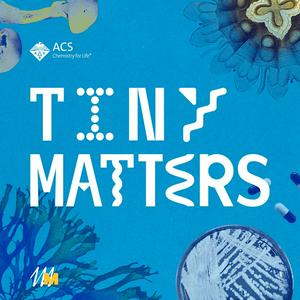[BONUS]: An inspiring pharmacist grandma and orcas wearing dead salmon hats: Tiny Show and Tell Us #21
In this episode of Tiny Show and Tell Us, we hear from a listener about her incredible grandma who’s a pharmacist in Venezuela (still, at 92 years old!) and has inspired her love of science and current lab work. We then talk about orcas spotted wearing dead salmon as hats, and what this fishy behavior may mean. We need your stories — they're what make these bonus episodes possible! Write in to
[email protected] *or fill out this form* with your favorite science fact or science news story for a chance to be featured.A transcript and references for this episode can be found at acs.org/tinymatters.See Privacy Policy at https://art19.com/privacy and California Privacy Notice at https://art19.com/privacy#do-not-sell-my-info.
